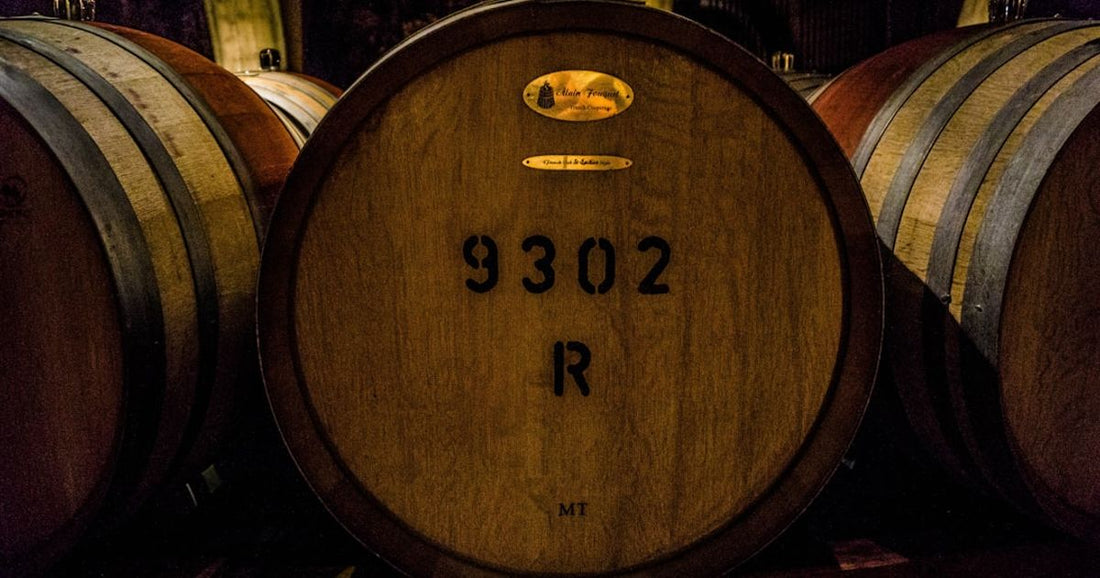
Collaborative Marketing in the Wine Industry
Share
In the world of wine, where tradition often meets innovation, collaborative marketing stands out as a strategy that can rejuvenate brands, expand audience reach, and significantly boost sales. This approach involves wineries partnering with each other or with companies from different sectors to create synergistic marketing campaigns. Such collaborations can take various forms, from co-hosting events to launching joint products, and they offer a plethora of benefits including shared resources, increased exposure, and enhanced brand perception. In this article, we delve into innovative collaborative marketing strategies for wineries, exploring how they can leverage these partnerships to achieve their marketing objectives.
Key Takeaways
Before we dive deep into the essence of collaborative marketing in the wine industry, here are some key points to remember:
- Collaborative marketing can significantly extend a winery's reach and introduce its products to new audiences.
- Partnerships with non-wine businesses can open up creative avenues for promotion and sales.
- Leveraging technology and social media can amplify the impact of collaborative efforts.
- Sustainability and community-focused collaborations can enhance brand image and loyalty.
- Measuring the success of these collaborations is crucial to refining and improving future marketing strategies.
Exploring Partnership Opportunities
Collaborative marketing in the wine industry is not limited to partnerships between wineries. By exploring collaborations with businesses outside the wine sector, wineries can unlock new marketing channels and audiences.
Cross-Industry Collaborations
Cross-industry collaborations involve partnering with businesses that are not directly related to wine production but share a similar target audience. For instance, a winery might collaborate with a luxury spa to offer wine-themed wellness retreats, combining the experiences of wine tasting and relaxation. This not only introduces the winery's products to a new audience but also enhances the brand's image by associating it with luxury and wellness. Another example could be partnering with artisanal food producers to create exclusive wine and food pairing events or packages, appealing to foodies and wine enthusiasts alike.
Leveraging Local Tourism
Wineries situated in popular tourist destinations have a unique opportunity to collaborate with local tourism boards and hospitality businesses. By offering joint packages or participating in local tourism events, wineries can attract tourists looking for authentic local experiences. This strategy not only boosts sales but also contributes to the local economy, fostering a sense of community and collaboration among local businesses.
Embracing Digital Collaborations
In today's digital age, leveraging technology and social media for collaborative marketing can significantly amplify the reach and impact of campaigns.
Social Media Influencers and Bloggers
Partnering with social media influencers and bloggers who specialize in wine, food, or lifestyle content can be an effective way to reach new audiences. These influencers can create content around your winery, such as reviews, tasting experiences, or behind-the-scenes looks, providing authentic endorsements to their followers. For example, a collaboration with a popular wine blogger could involve a series of posts about the winemaking process, highlighting the unique aspects of your winery and its products.
Virtual Tasting Events
Virtual tasting events have gained popularity, especially in the wake of global events that have limited physical gatherings. Collaborating with other wineries or businesses to host virtual wine tastings can attract a wide audience from different locations. These events can be enhanced with the inclusion of guest speakers, such as renowned sommeliers or chefs, offering participants a comprehensive and engaging experience. Additionally, virtual events provide an opportunity to sell wine tasting kits, further boosting sales.
Focusing on Sustainability and Community
Sustainability and community-focused collaborations can significantly enhance a brand's image and foster customer loyalty.
Sustainable Practices Collaborations
Partnering with organizations or businesses that focus on sustainability can help wineries implement and promote eco-friendly practices. For instance, a winery could collaborate with a local environmental organization to host clean-up events or workshops on sustainable agriculture. These collaborations not only contribute to environmental conservation but also resonate with consumers who value sustainability, enhancing the winery's reputation.
Community Engagement
Engaging with the local community through collaborative events or initiatives can strengthen a winery's brand presence and loyalty. This could include hosting community events, supporting local charities, or collaborating with local artists to create unique wine labels. Such initiatives demonstrate the winery's commitment to the community and can lead to strong local support and advocacy.
Measuring Success and Refining Strategies
To ensure the effectiveness of collaborative marketing efforts, it's crucial to measure success and refine strategies based on performance.
Setting Clear Objectives and Metrics
Before embarking on a collaborative marketing campaign, it's important to set clear objectives and identify metrics for measuring success. Whether the goal is to increase sales, enhance brand awareness, or grow social media engagement, having specific targets and metrics will help in evaluating the campaign's performance.
Continuous Improvement
Analyzing the outcomes of collaborative marketing efforts allows wineries to understand what works and what doesn't. This insight is invaluable for refining future strategies, optimizing campaigns for better performance, and making informed decisions about future collaborations.
Collaborative marketing presents a world of opportunities for wineries to enhance their brand, reach new audiences, and boost sales. By exploring partnerships both within and outside the wine industry, embracing digital collaborations, focusing on sustainability and community, and measuring success to refine strategies, wineries can unlock the full potential of collaborative marketing. For more insights into the wine industry, explore our articles on the art of blending wines at home, combining wine tourism with wellness retreats, and developing a systematic approach to wine tasting.



